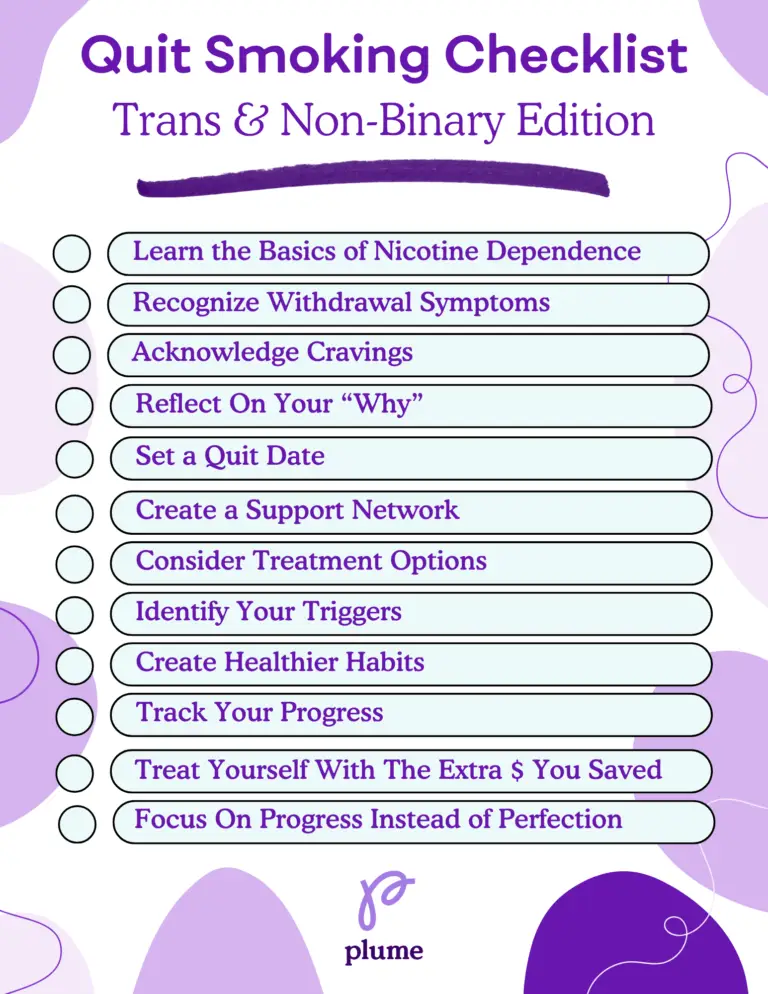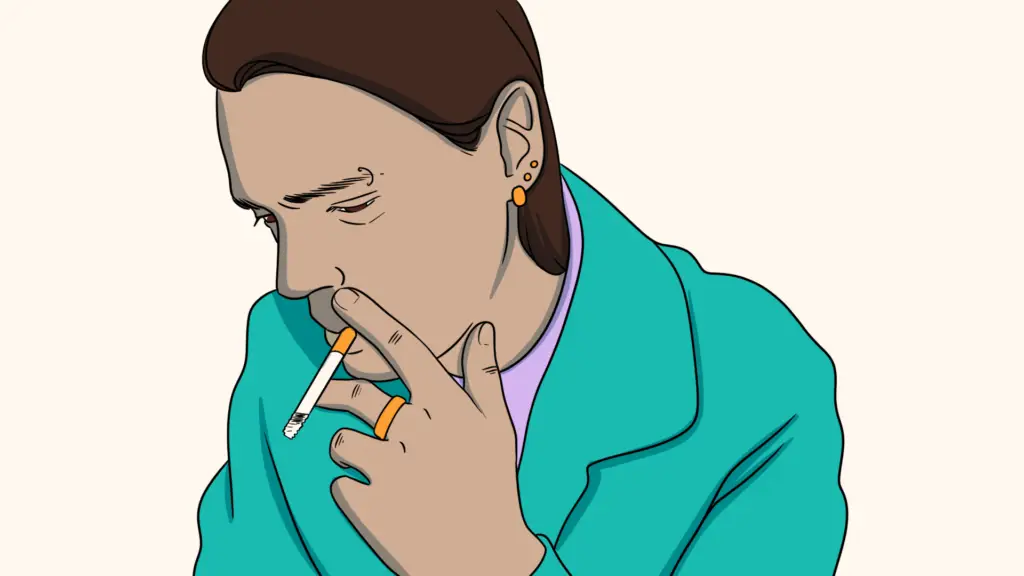Quitting smoking isn’t easy, but it’s one of the best things you can do for your health—especially when you’re on hormone therapy. Cutting back or quitting is a powerful step toward feeling your best. We’re here to help you through it!

What Is Nicotine Dependence?
If you’ve ever tried to quit smoking or vaping and found it hard, you’re not alone. Nicotine dependence is a real thing—it’s both a physical and psychological addiction.
Nicotine, a chemical in tobacco, gives your brain a quick burst of feel-good chemicals called endorphins and dopamine. Over time, your brain needs more nicotine to get the same effect, making it harder to quit.
When you stop smoking, your nicotine levels drop, and withdrawal symptoms can kick in. You might feel irritable, restless, anxious, tired, or have trouble concentrating. These symptoms can lead to cravings, making it tempting to pick up a cigarette or vape again.
How Is Nicotine Dependence Treated?
The good news? There’s help – and Plume offers treatment for nicotine dependence. There are proven treatments for nicotine dependence.
During your appointment, your provider will take the time to understand your needs. Depending on what’s right for you, they might recommend treatments like nicotine replacement therapy, Bupropion SR (Wellbutrin SR), or Varenicline.
But treatment isn’t just about medication. Together, you and your care provider will build a quitting plan that fits your life, with resources and support to make the process manageable.
Hormone Therapy and Tobacco Use
If you’re taking hormones, quitting smoking is even more important.
- For folks on testosterone: Smoking isn’t a direct contraindication, but it can add to health risks over time, like higher cholesterol, which can increase your chances of heart disease or stroke.
- For folks on estrogen: Smoking raises the risk of blood clots, strokes, and heart attacks. These risks are higher for people over 35 or with other health conditions.
No matter which form of hormone therapy you’re on, smoking also increases your chances of developing serious conditions like COPD, lung cancer, and diabetes. Quitting—or even cutting back—can make a huge difference.
You’re Not Alone!
Quitting smoking or vaping is a journey, and it’s okay to take it one step at a time. With the right support and resources, you can make meaningful progress toward better health. Whether you’re seeking advice from a care provider or using tools like nicotine replacement therapy, there are options to help you succeed. Taking the first step is the hardest part, but it’s also the most important. Wherever you are in your journey, you’ve got this!



